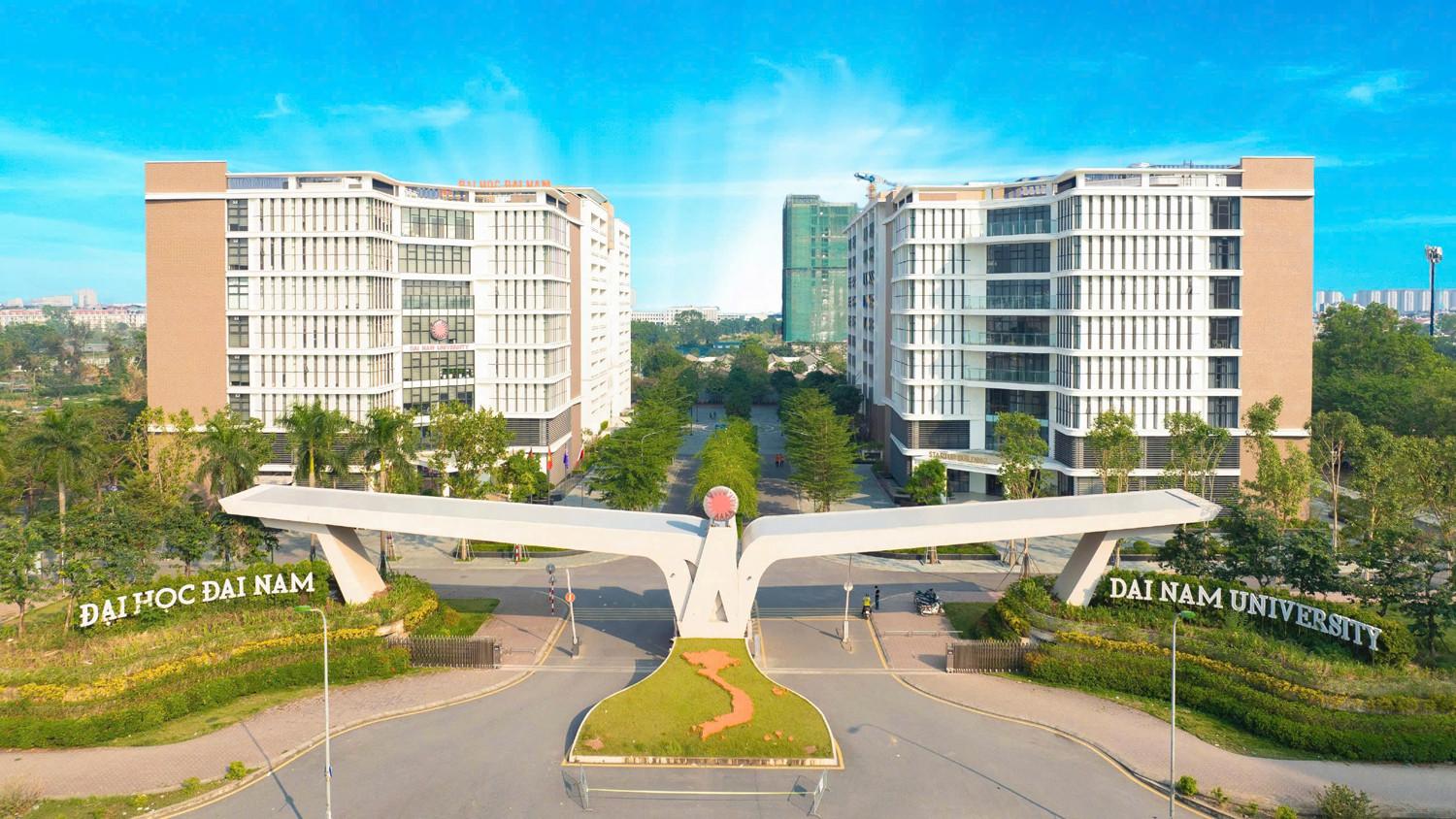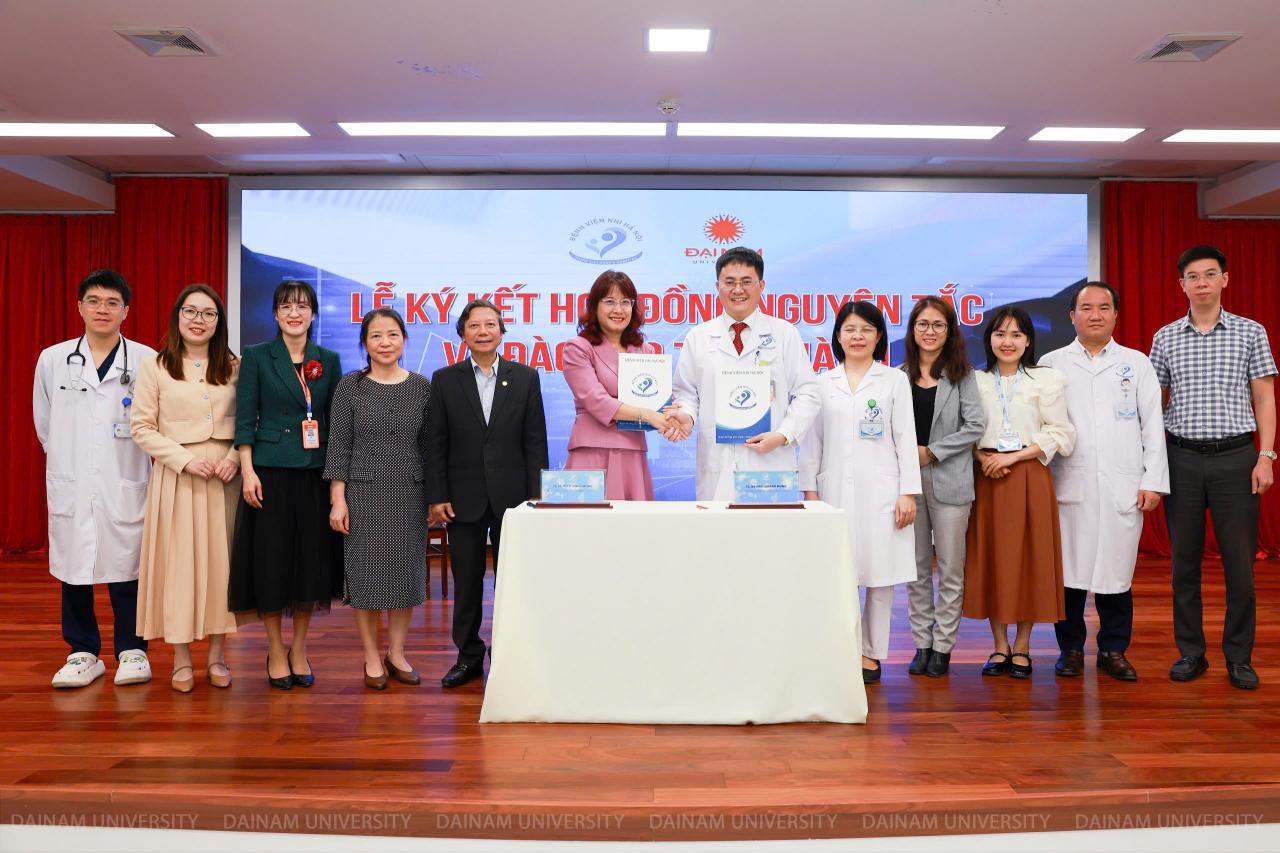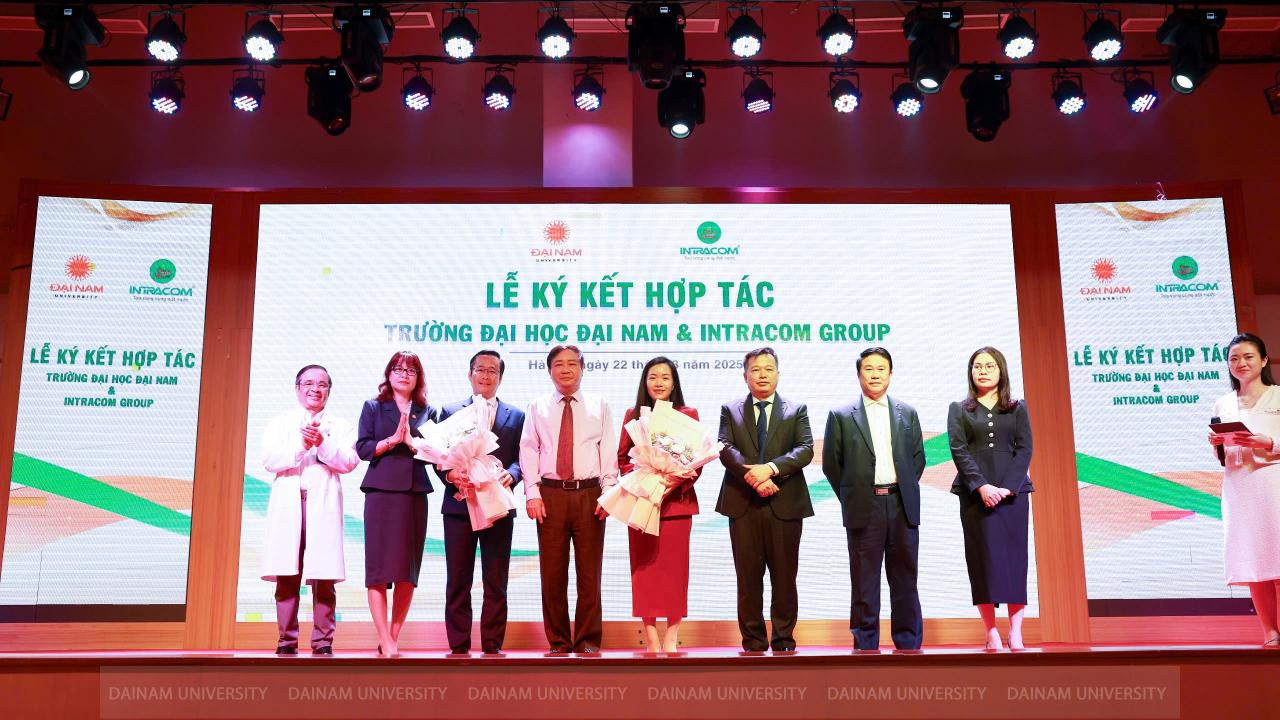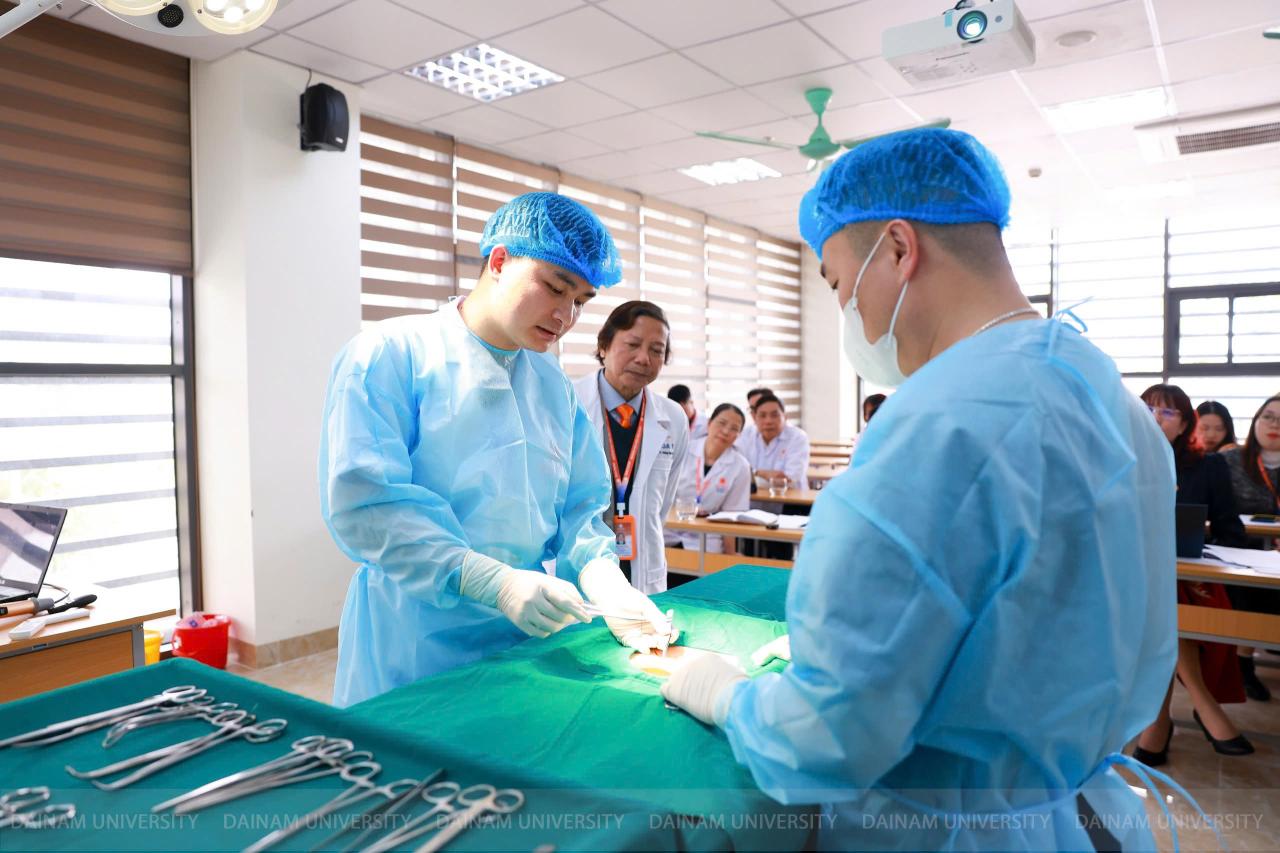Is it easy to get a job after studying medicine?

Is it easy to find a job after studying Medicine? This is the concern and question of candidates and parents when they learn about and intend to study Medicine at university level. So, is it easy to find a job after studying Medicine? Let's find out through the article below!
What is Medicine?
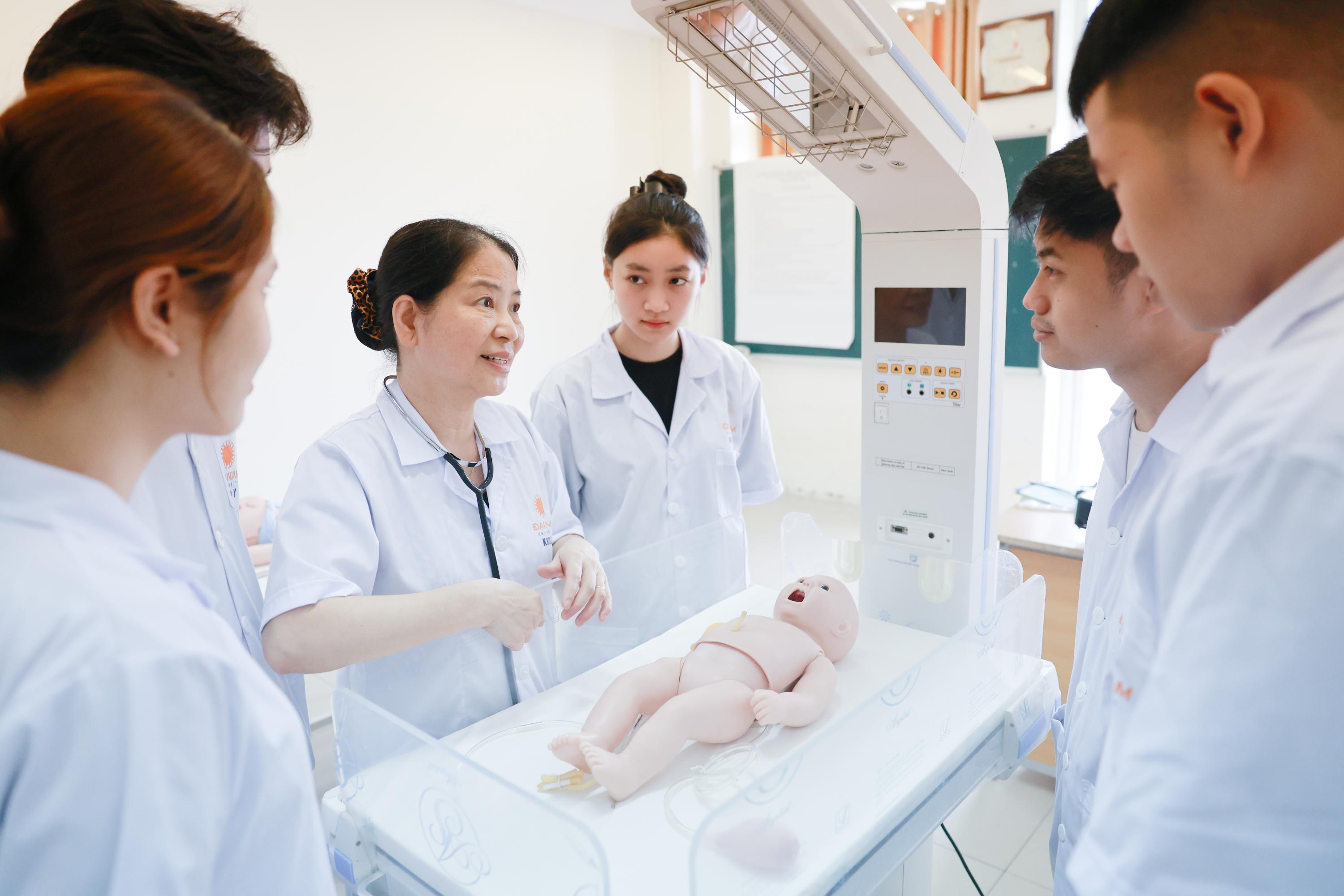
Medicine is a prestigious major, attracting the top attention of excellent, dynamic and talented students in every university admission season.
Medicine (also known as General Medicine, English name: General Medicine) is a field of study that trains general practitioners with the skills to examine, diagnose, treat and guide the prevention of common diseases in hospitals and the community.
The training goal of the Medical sector is to train general practitioners with adequate medical ethics, solid basic scientific and medical knowledge, basic clinical and community knowledge and skills, combining modern medicine with traditional medicine, having foreign language proficiency and scientific research capacity, and the ability to access and apply medical scientific achievements in protecting and caring for people's health.
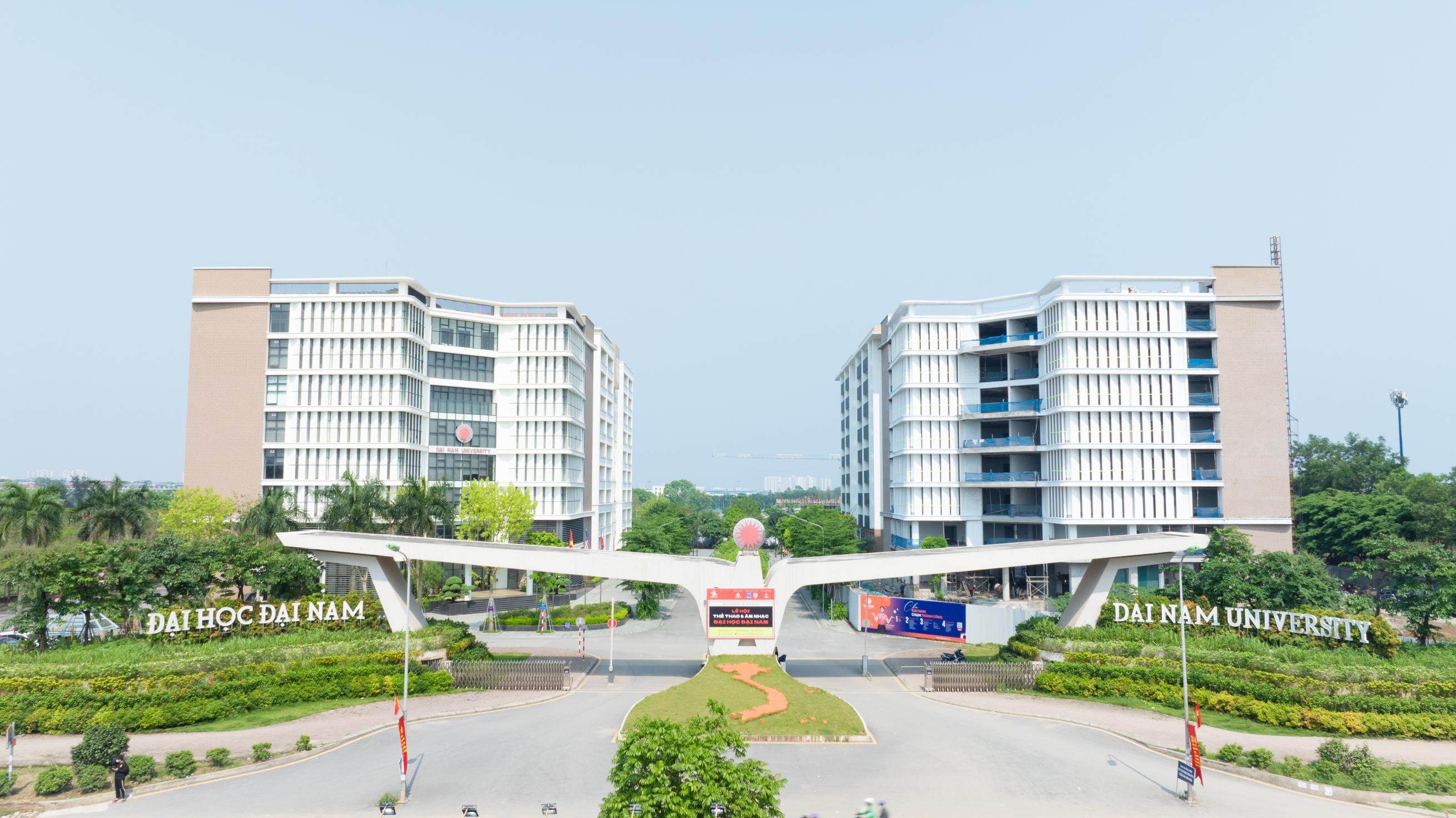
Dai Nam University is one of the few non-public universities in the North licensed to train in Medicine.
What does medicine study?
Training period: 6 years.
During the first two years, medical students will be equipped with basic scientific and medical knowledge to form a solid foundation for acquiring professional knowledge in the last four years of the training program.
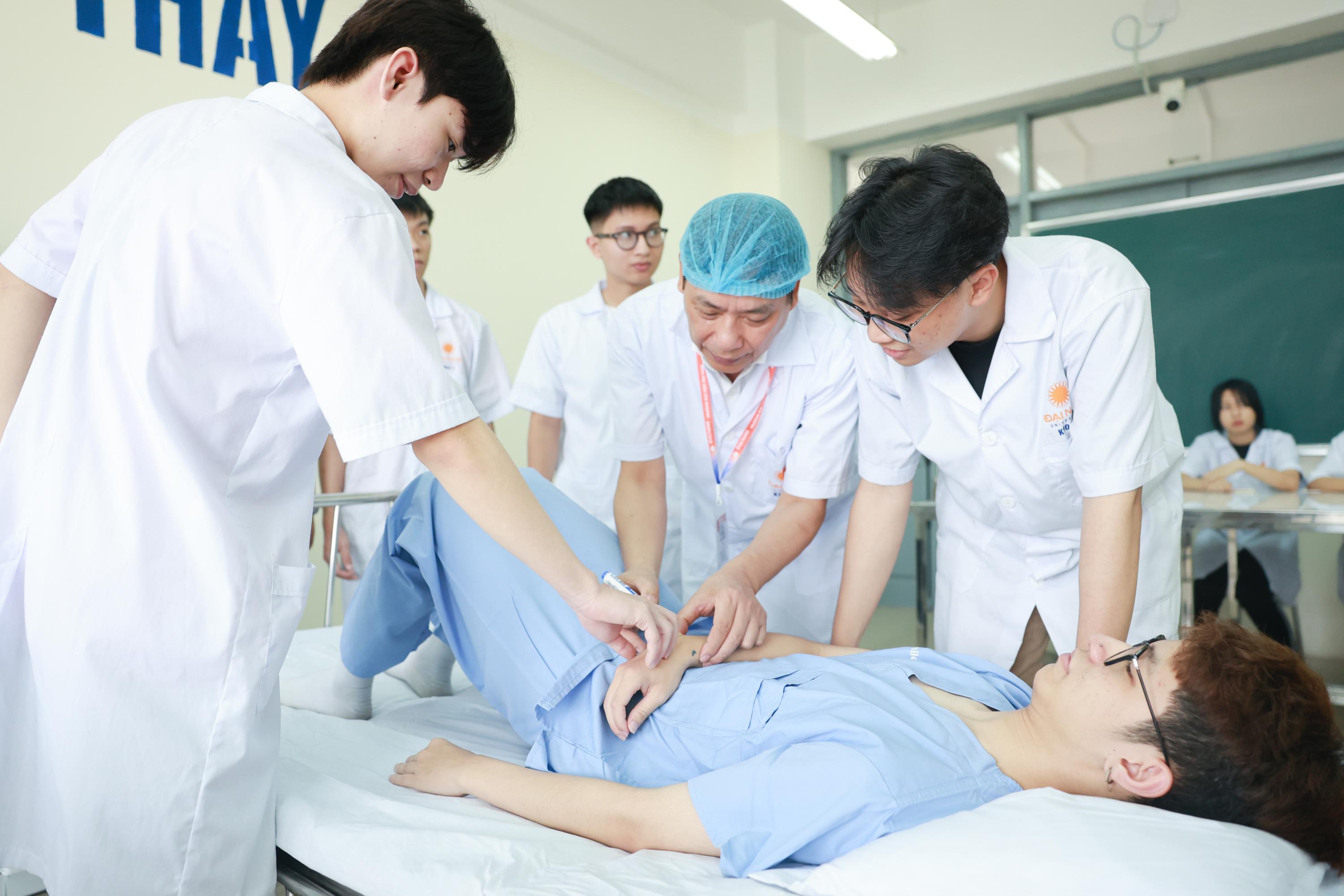
The Medical training program of Dai Nam University equips students with professional knowledge, professional skills, soft skills, IT capacity... and outstanding foreign language proficiency.
In addition, right from the first year, medical students are also taught basic English, IT, Soft Skills, General Law... to confidently obtain a practice certificate after graduation.
From semester IV to semester XII, students must practice and participate regularly at the hospital. Studying in a real environment at hospitals is an opportunity for students to practice their future professional skills.
At Dai Nam University, the training program of the Medical faculty is built according to CDIO, based on the output standards to meet the capacity of general practitioners issued by the Vietnamese Ministry of Health in 2014.
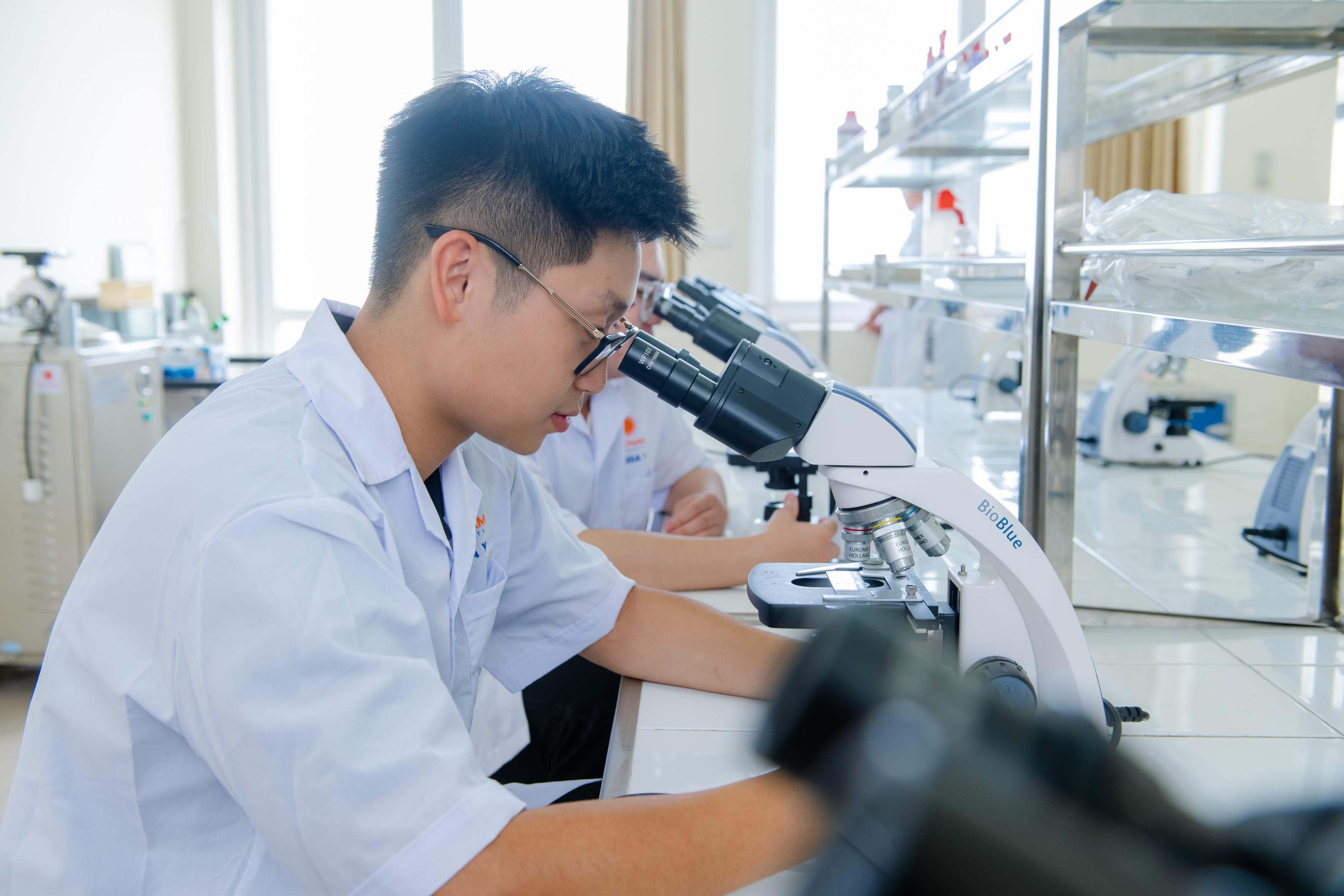
Students can study and practice on modern equipment systems right at school.
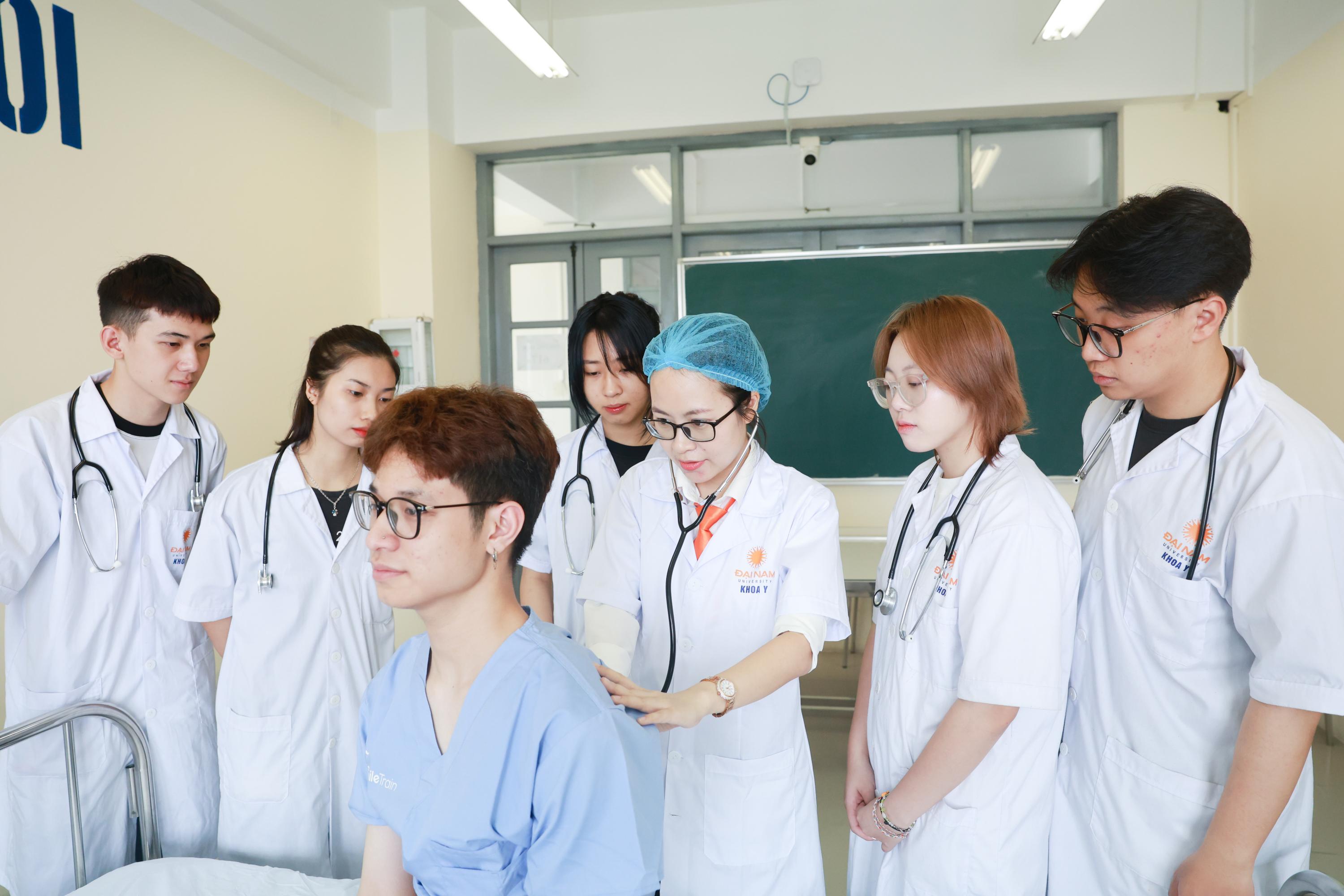
Ensure proficiency in skills before attending clinical training at the hospital.
The medical training program is designed with 198 credits (not including Physical Education, National Defense and Security Education).
The program is built with 155 credits of professional education knowledge, of which the knowledge block by industry group is 8 credits, the knowledge block by industry and supplementary is 147 credits (the core subjects of the medical industry are internal medicine, surgery, obstetrics and gynecology and pediatrics account for 79 credits).
In addition, the training program also equips students with general English knowledge at level 3/6 and specialized English. Dai Nam University invests 4 times more in English training for medical students than other majors.
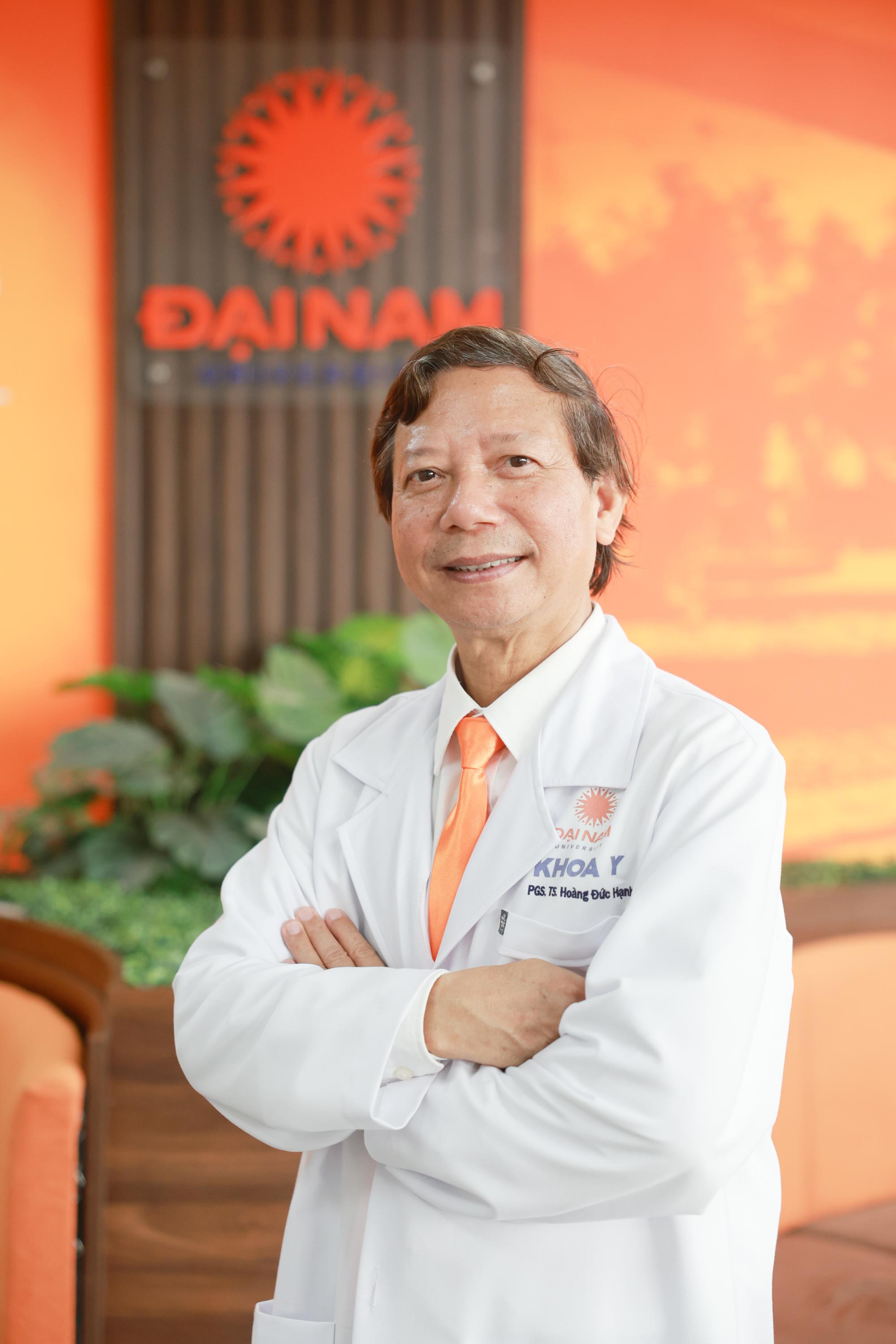
Associate Professor, Doctor, Senior Lecturer Hoang Duc Hanh - Head of Faculty of Medicine, Dai Nam University, former Deputy Director of Hanoi Department of Health.
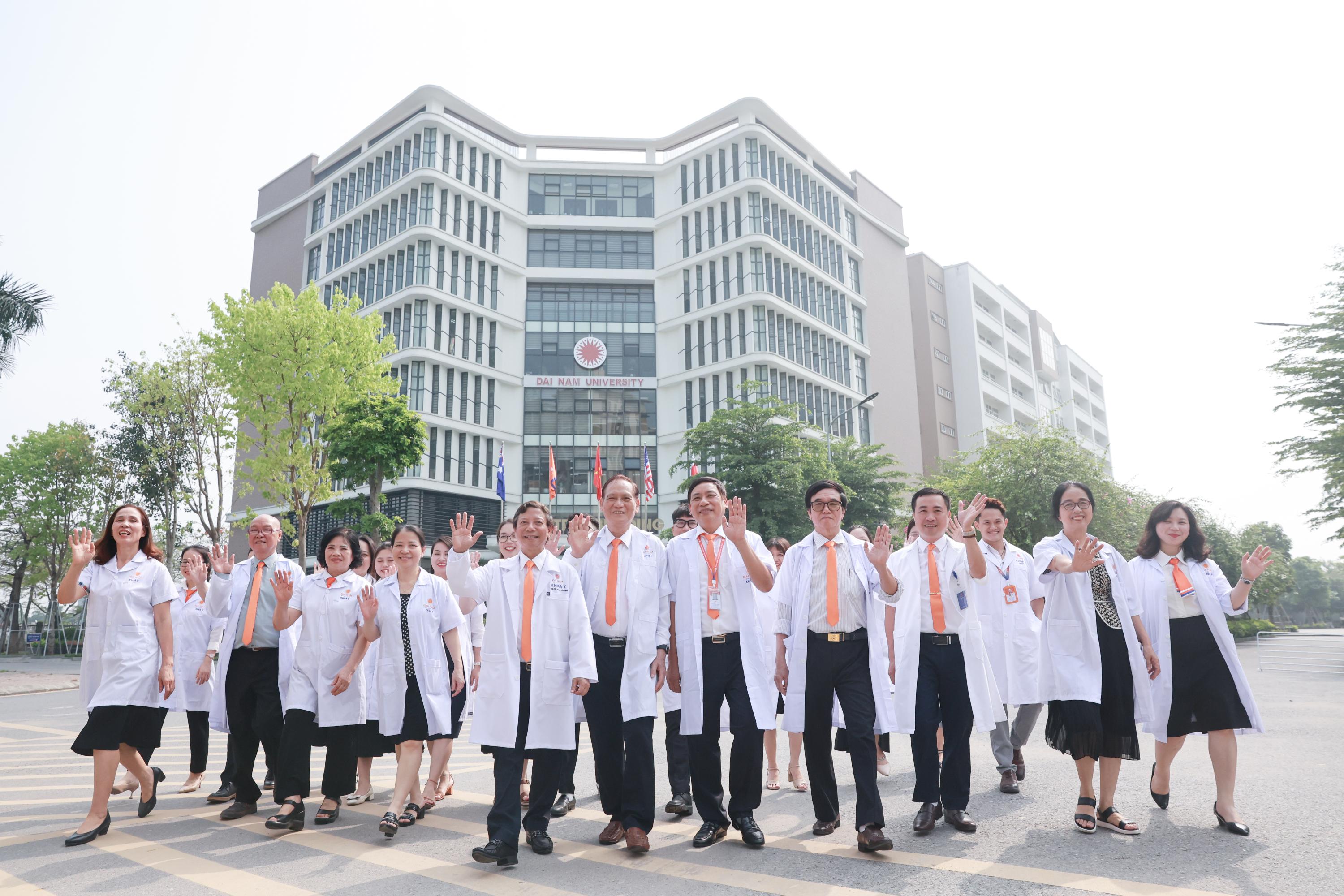
A strong team of lecturers, highly qualified, experienced and dedicated from the Faculty of Medicine, Dai Nam University.
Students are given the opportunity to participate in scientific research right from the first year of the course (after having acquired basic scientific and medical knowledge). Students have the ability to be autonomous, self-responsible and highly disciplined, and have the ability to develop themselves...
Is it easy to get a job after studying medicine?
According to the Ministry of Health, the ratio of doctors per 10,000 people in Vietnam is 8.6; 4-8 times lower than many countries with developed medical sectors. The total number of staff working in preventive medicine from the central to district levels only meets 42% of the human resource needs. The shortage of medical personnel is about 23,800 people, of which 8,075 are doctors of preventive medicine, 3,993 are bachelors of public health...
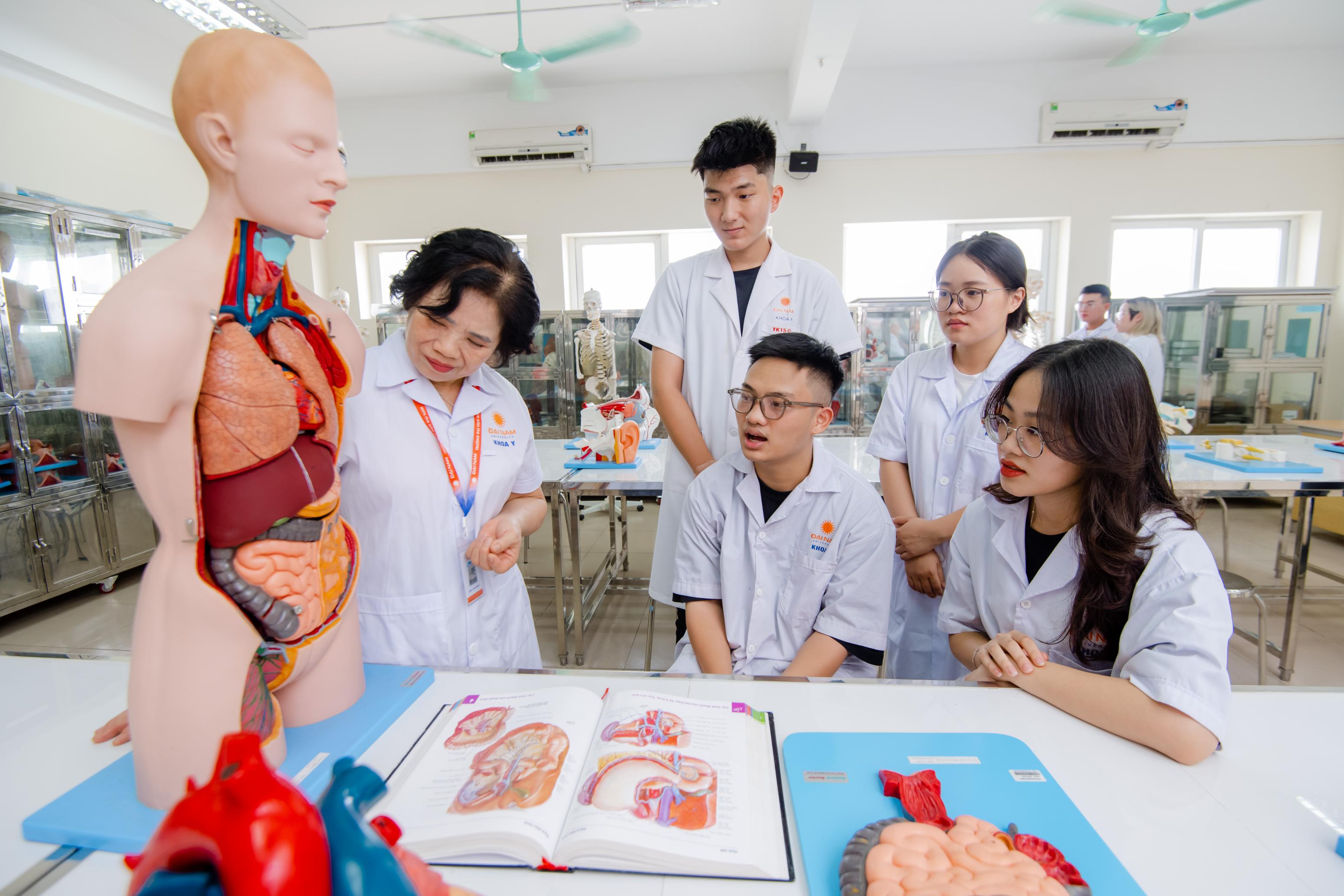
The demand for human resources is high, medical students can easily find jobs after graduation and have many opportunities for self-development.
The number of medical students graduating each year cannot meet the growing needs of society, causing the medical industry to always be in a state of "thirst" for human resources.
After graduating from the Medical Faculty, with a degree in general practitioner, you can take on the following roles and positions:
- Doctors directly examine and treat patients at medical facilities from grassroots to central levels (including public and private facilities).
- Lecturer, teaching assistant at colleges and universities training in health sector.
- Specialists of health management agencies from grassroots to central level.
Admission methods for Medicine at Dai Nam University
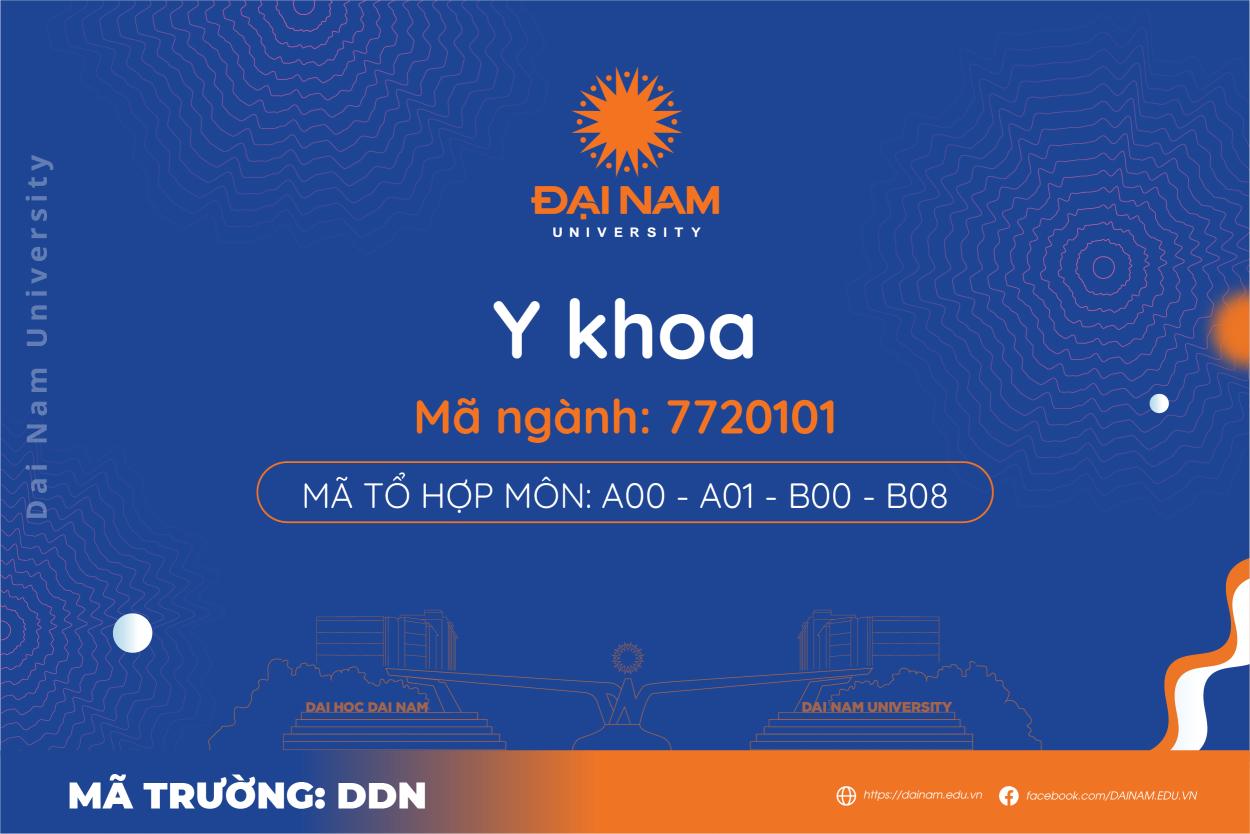
Method 1: Consider high school graduation exam scores.
Method 2: Admission based on 12th grade high school transcript (Average score of 12th grade according to the combination of 3 subjects for admission ≥ 24 points).
Method 3: Direct admission according to regulations of the Ministry of Education and Training and the School.
>>> REGISTER FOR ADMISSION: HERE
Register for admission consultation 2025
scholarships and tuition support worth up to 55 billion VND

scholarships and tuition support worth up to 55 billion VND


